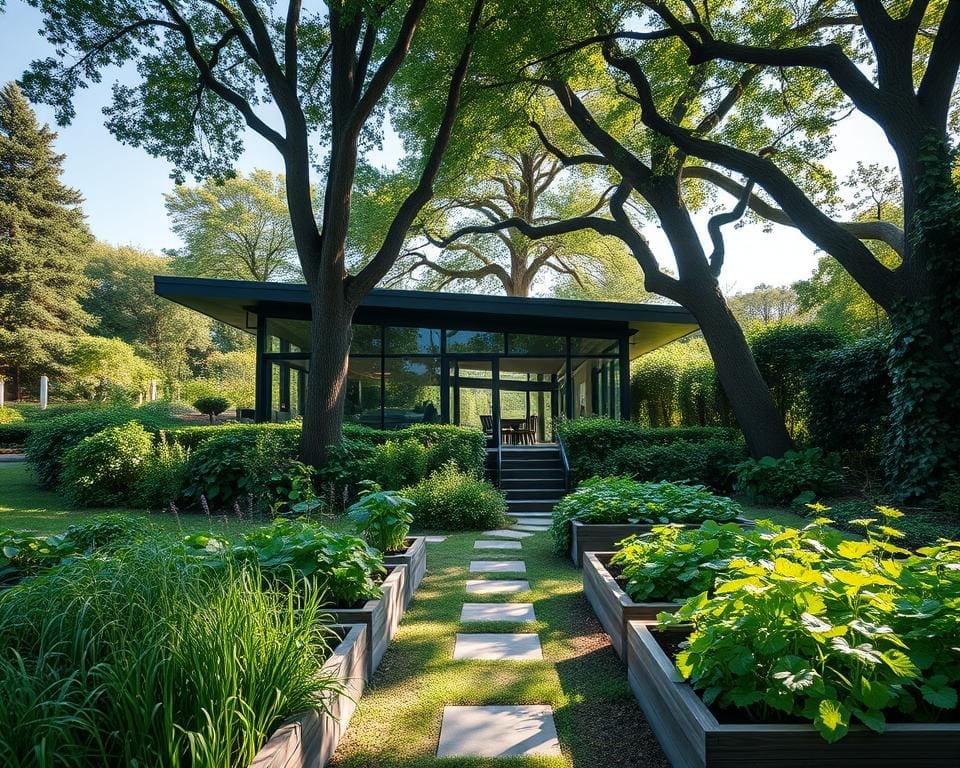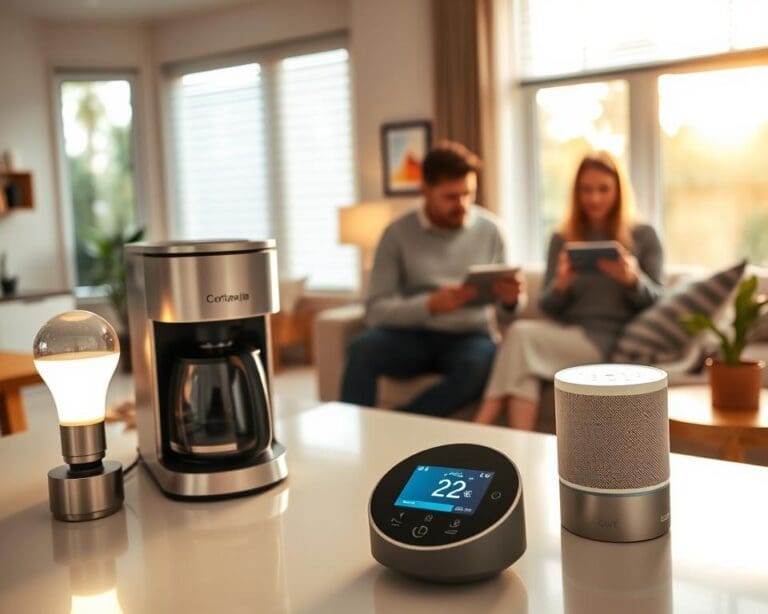In today’s rapidly changing world, the importance of eco-friendly garden structures such as sustainable garden houses cannot be overstated. These innovative spaces are designed to enhance not only personal enjoyment and gardening but also to promote a lifestyle that embraces the benefits of sustainable living. By integrating sustainability into your outdoor spaces, you can contribute to environmental health while creating a serene retreat for leisure and community activities.
Sustainable garden houses stand as a testament to the harmony between nature and human creativity, encouraging a shift towards more responsible and eco-conscious practices. In this article, we shall explore the multitude of advantages they offer, revealing how such garden houses can profoundly benefit both individual well-being and the ecosystem at large.
Introduction to Sustainable Garden Houses
Sustainable garden houses represent a new wave of eco-friendly building, merging functionality with environmental responsibility. These structures often utilise renewable resources, such as reclaimed wood and natural insulation materials, which not only reduces waste but also emphasises sustainability. An introduction to eco-friendly building reveals that these garden houses can serve multiple purposes, from creative workspaces to serene retreats, all while adhering to principles of sustainability.
The benefits of sustainable gardens extend beyond mere aesthetics. Incorporating these designs helps mitigate climate change by promoting reduced energy consumption and encouraging biodiversity. With an increasing number of environmentally conscious consumers opting for sustainable garden houses, data from environmental agencies, including DEFRA, highlights their growing popularity and tangible benefits. This shift towards greener living signifies a commitment to a better future, where innovative designs and sustainable practices coexist harmoniously.
What are the benefits of a sustainable garden house?
Sustainable garden houses offer a range of benefits that can greatly enhance both the environment and the lives of those who inhabit them. These structures are designed with sustainable features that positively impact the ecosystem. From reducing carbon footprints to nurturing local wildlife, the environmental benefits of these homes are significant.
Environmental Impact
One of the foremost advantages of sustainable garden houses is their ability to promote biodiversity. By using native plants and creating habitats that attract beneficial insects and birds, these gardens foster a rich ecosystem. Moreover, sustainable materials and techniques improve soil health, leading to more robust plant growth. This holistic approach contributes to the sustainability of the local environment.
Energy Efficiency
Energy efficiency stands as a cornerstone of sustainable garden houses. Integrating technologies such as solar panels and rainwater harvesting systems allows homeowners to significantly reduce their reliance on conventional energy sources. This not only lowers utility bills but also emphasises a commitment to reducing energy consumption. Incorporating these sustainable features can lead to substantial long-term savings while supporting an eco-friendly lifestyle.
Enhancing Biodiversity in Your Garden
Creating a sustainable garden house can significantly enhance biodiversity, making your outdoor space a haven for various species. Integrating elements that promote wildlife-friendly practices not only supports local ecosystems but also enriches your gardening experience. By focusing on native planting, you can encourage local wildlife, providing food and shelter for insects, birds, and small mammals.
Consider implementing wildlife corridors within your garden design. These pathways allow animals to navigate through urban environments, promoting movement and breeding. Incorporating organic gardening methods further contributes to a healthier ecosystem. By avoiding harmful pesticides and chemicals, you create a supportive environment for pollinators and other beneficial creatures essential for maintaining a balanced ecosystem.
The potential benefits of enhancing biodiversity extend beyond aesthetics. A flourishing garden filled with diverse plant life attracts vital pollinators such as bees and butterflies, crucial for plant reproduction. This harmonious interaction not only nurtures your plants but also fosters a vibrant, interconnected biological community.
Cost-Effective Solutions for Sustainable Living
The journey towards a sustainable garden house not only nurtures the environment but can also lead to significant financial benefits. Embracing cost-effective sustainability allows homeowners to realise substantial savings, particularly through lower energy consumption and efficient resource management. The growing emphasis on energy-efficient designs and sustainable materials sets the stage for long-term financial gain.
Long-Term Savings on Utilities
One major advantage of a sustainable garden house is the potential for remarkable utility savings. By integrating energy-efficient appliances, solar panels, and proper insulation, homeowners can drastically reduce their energy bills. Research indicates that utilising such sustainable technologies can lead to savings of up to 30% on energy costs. Over time, this means that investment in sustainable materials not only pays for itself but also continues to yield savings for years to come.
Potential Government Grants and Incentives
Homeowners in the UK can further enhance their sustainability journey by taking advantage of various government incentives designed to promote green living. Grants and financial support are available for those looking to build or renovate with the environment in mind. Such incentives may cover a range of projects, from installing renewable energy systems to enhancing energy efficiency. By tapping into these resources, individuals can facilitate cost-effective sustainability while minimising upfront expenditures.
Improving Mental Health and Well-being
Engaging with nature through gardening offers remarkable mental health benefits. A sustainable garden house invites individuals to connect with the earth, fostering a sense of tranquility. Studies suggest that spending time in green spaces can significantly reduce stress levels and promote a feeling of well-being. The therapeutic qualities of nature often lead to increased mindfulness, allowing people to focus on the present moment without the distractions of daily life.
Participating in wellness in gardening activities such as planting, nurturing plants, and designing green spaces cultivates not only the garden but also the gardener’s mental state. The act of gardening provides a sense of purpose and accomplishment, essential factors for a positive mindset. Engaging the senses through this hands-on practice allows for a deeper connection to the environment, further enhancing emotional health and resilience.
Numerous organisations advocate for access to green spaces as crucial elements for promoting mental wellness. These areas provide essential opportunities for reflection and relaxation, fundamentally influencing the quality of life. By embracing sustainable gardening, individuals not only contribute to environmental health but also enrich their own psychological well-being.
Creating an Eco-Friendly Outdoor Space
Transforming your outdoor area into an eco-friendly outdoor space can greatly enhance both its aesthetic appeal and environmental sustainability. By utilising renewable resources and incorporating sustainable practices, you can create a garden that benefits both nature and your well-being.
Utilising Renewable Resources
Integrating renewable resources into your garden not only supports sustainability but also reduces your environmental footprint. Consider the following:
- Composting: Turning kitchen scraps and garden waste into nutrient-rich compost nourishes your soil and helps reduce landfill waste.
- Rainwater harvesting: Collecting rainwater for irrigation conserves water and utilises nature’s resources.
- Solar energy: Installing solar panels to power garden lighting or other small appliances further contributes to an eco-friendly outdoor space.
Incorporating Sustainable Practices
Adopting sustainable gardening practices enhances not only the health of your plants but also that of the environment. Here are some effective methods:
- Permaculture: This approach creates a self-sustaining ecosystem that benefits from natural relationships between plants and wildlife.
- Organic gardening: Utilizing natural pest control and fertilisation methods keeps chemicals out of your garden while promoting biodiversity.
- Drought-resistant planting: Selecting native plants that require less water conserves resources and minimises maintenance.
Increasing Property Value with a Sustainable Garden House
In today’s property market, the importance of sustainable home enhancements cannot be overstated. A sustainable garden house not only reflects an owner’s commitment to eco-friendliness but also contributes significantly to the overall property value. Properties featuring environmentally friendly characteristics have shown a strong appeal among potential buyers, particularly as the demand for sustainability continues to rise.
Research from property organisations, including Savills, suggests a solid correlation between sustainability and market trends. Homebuyers are increasingly inclined to invest in sustainability, recognising that eco-friendly homes offer long-term financial benefits. Sustainable garden houses can lead to higher valuations due to their energy efficiency and reduced running costs.
Investing in sustainability is not merely a trend; it represents a shift in how we perceive home ownership. Features such as solar panels, rainwater harvesting systems, and eco-friendly materials are increasingly viewed as desirable amenities. This transformation in buyer preferences can yield better financial returns when it comes time to sell or rent the property.
By prioritising a sustainable garden house, homeowners position themselves advantageously in a competitive market. As evidenced by ongoing shifts in consumer behaviour, incorporating sustainable features enhances property attractiveness while driving up property value.
Getting Started with Your Sustainable Garden House
Embarking on the journey to create a sustainable garden house begins with thoughtful planning. It’s essential to assess your space and outline your vision, keeping in mind sustainable landscaping principles. Start by identifying the natural features of your garden, as this will inform the design and positioning of your house, ensuring harmony with the environment.
When contemplating building guidelines, researching local regulations is crucial. The Planning Portal can be a valuable resource for understanding the permissions necessary for your project. Familiarising yourself with these requirements not only streamlines the process but also reinforces your commitment to sustainable practices. Additionally, selecting eco-friendly materials from reputable suppliers will enhance the sustainability of your build while offering a unique character to your garden house.
Consider involving professionals who specialise in eco-friendly designs and sustainable landscaping. They can provide insights and innovative solutions tailored to your needs, ensuring that every aspect of your garden house aligns with both your vision and environmental standards. With a clear plan in place and the right resources, you’ll be well on your way to creating a sustainable garden house that enriches both your life and the planet.









